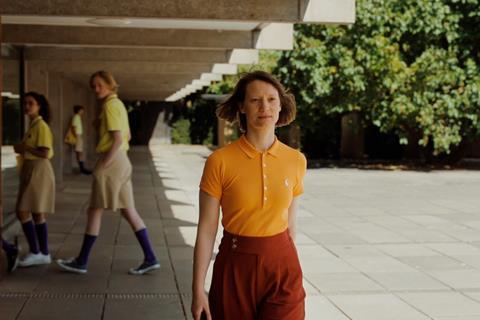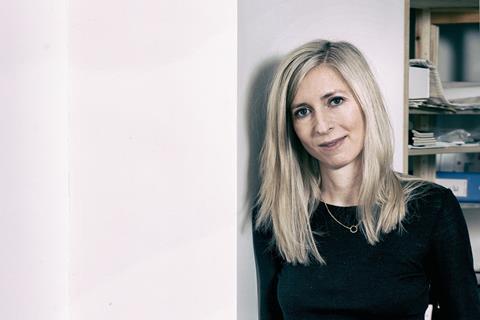
The sixth film and second English-language feature from Austrian filmmaker Jessica Hausner, Club Zero marks the director’s second time in Competition at Cannes following Little Joe, which won the best actress award for Emily Beecham in 2019. Hausner’s previous films — Lovely Rita (2001), Hotel (2004) and Amour Fou (2014) — screened in Un Certain Regard, while her short Inter-View received a special mention in Cinéfondation 1999.
Club Zero stars Mia Wasikowska as a teacher at an elite boarding school whose lessons on “conscious eating” have radical and drastic effects on her students. Sidse Babett Knudsen, Amir El-Masry, Elsa Zylberstein and Mathieu Demy co-star alongside new faces Luke Barker, Samuel D Anderson, Florence Baker, Ksenia Devriendt and Gwen Currant.

The film is a European co-production between Austria’s Coop99 and France’s Coproduction Office with the UK’s Essential Films, France’s Parisienne and Denmark’s Paloma Productions. Coproduction Office is handling international sales.
How did Club Zero come about?
The first inspiration came from the fairytale of the Pied Piper of Hamelin, who abducts the children of a village. I felt the vulnerability of the parents because losing a child is the worst thing that can happen to any parent, and it’s even worse if you feel somehow responsible.
I’m interested in trying to put my finger on the weak spots of how society is organised, and this is a weak spot because there’s no real plan about childcare now. The film starts with reasonable ideas around nutrition, but they soon go too far so it’s about radicalisation and manipulation as the students’ ideas are turned into something that harms them. Even something that starts out as a positive can be twisted into something bad.
What were the biggest challenges when you were making the film?
We lost some of the money near the start of production — partly because of inflation — and we had to re-arrange things at the last minute. I was worried about not being able to realise the film I wanted to make.
How and when did you attach your cast?
Our casting director Lucy Pardee [Aftersun, Rocks] is very experienced in getting newcomers and she found five of the actors playing the lead students after a two-month search in British schools. Mia Wasikowska was the first actor to come on board. She was my first choice because I’ve dreamed of working with her for years. Sidse was also my first choice. The fact the film is set in an international school meant we could spread our net wide for casting. That was part of the plan for the film — it’s not about a British or French or Austrian school system, it’s about Europe.
Where and when did you shoot?
We filmed over the summer of 2022 in Oxford because it was easiest for the younger cast if we were in the UK. Our main location was St Catherine’s College in [the University of] Oxford, which we chose because it was designed by [Danish modernist] Arne Jacobsen and it could be anywhere in Europe. I’m a fan of style; I try to tell more universal stories that are not set in a specific place or time. In the same way, my characters tend to be archetypes which fit more with the heightened realism of the films. We also shot for two weeks in Austria for the parents’ homes.
Do you have a memorable moment from the shoot?
The young actors playing the students all had to learn a skill, because the school is a talent campus. Florence Baker’s [who plays Ragna in the film] was trampolining. When it came to shooting her trampolining scene, she was so worried; we were all super-stressed and everyone, including the unit nurse, was massively relieved when it was over.
You’ve been to Cannes with all but one of your previous films. What is your favourite memory of the festival?
When I was at the festival with my debut film Love Rita, it all felt so easy. I was so proud and happy, and I felt as though I owned the world. The subsequent visits were different because I now understand how Cannes works and I have to be more professional and I can’t party all night because I need to be awake for morning meetings.
Do you have a favourite Palme d’Or winner?
Julia Ducournau’s Titane. I was on the jury and I was so happy it won because my favourite film never wins the Palme d’Or.

























No comments yet